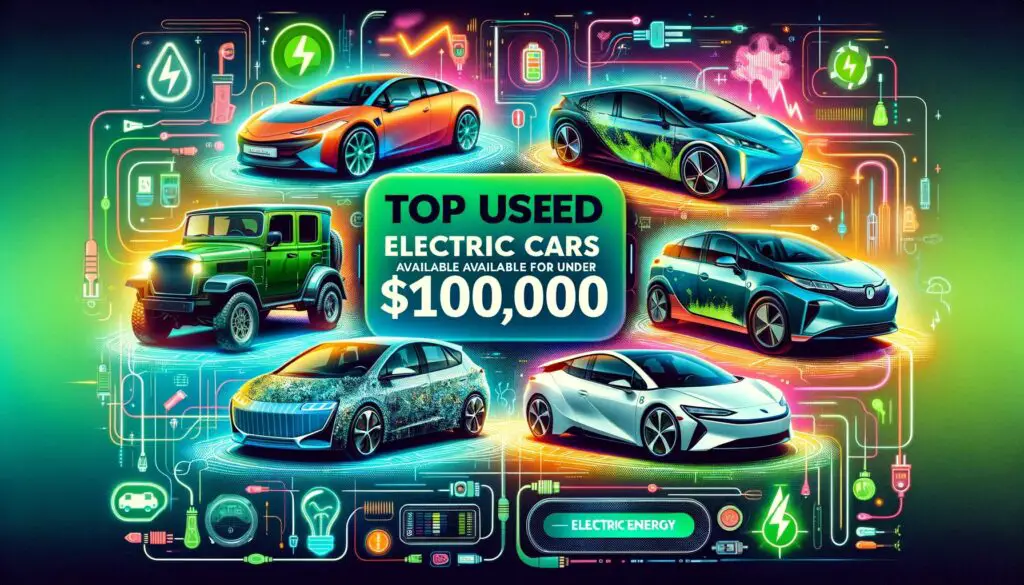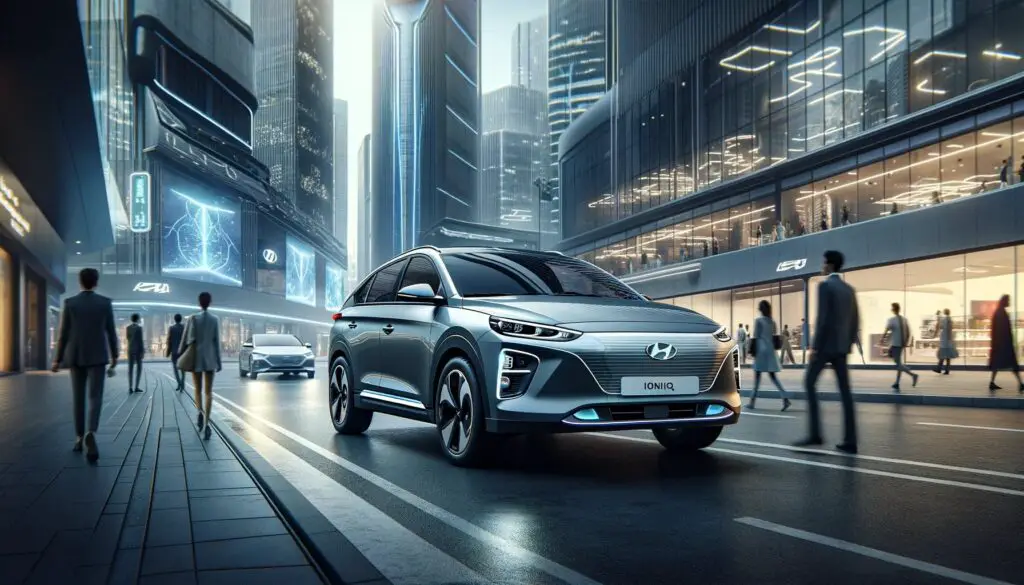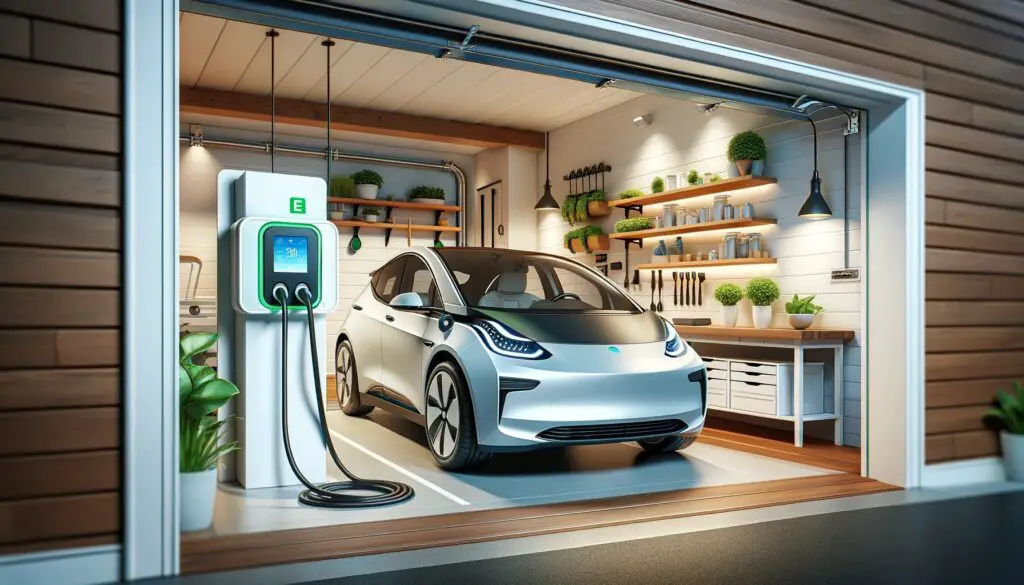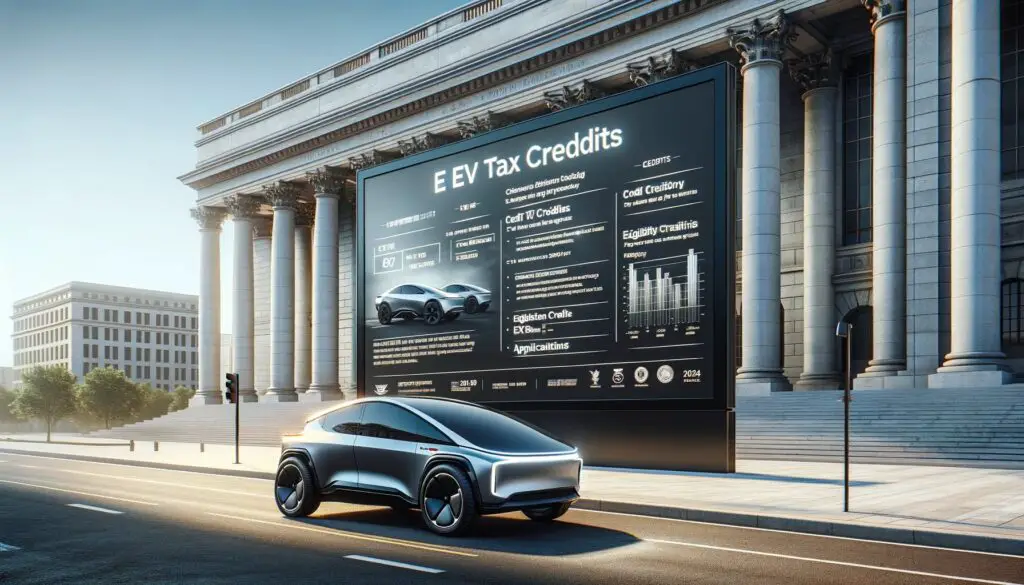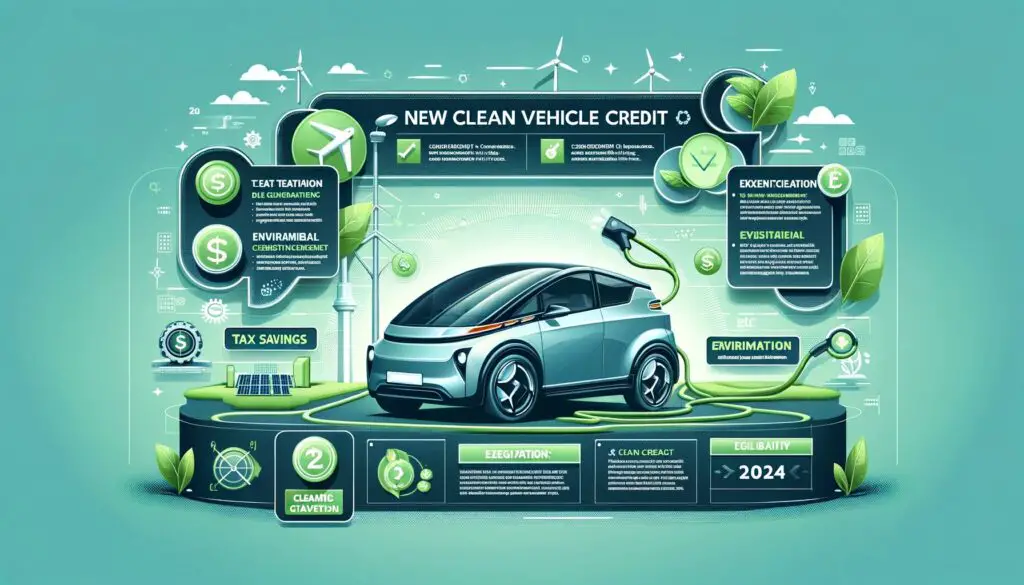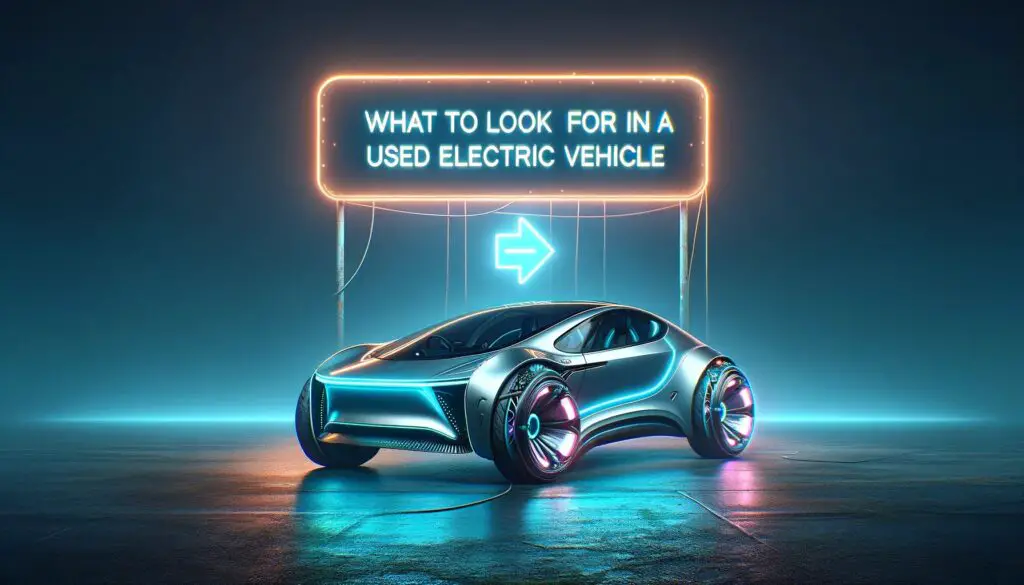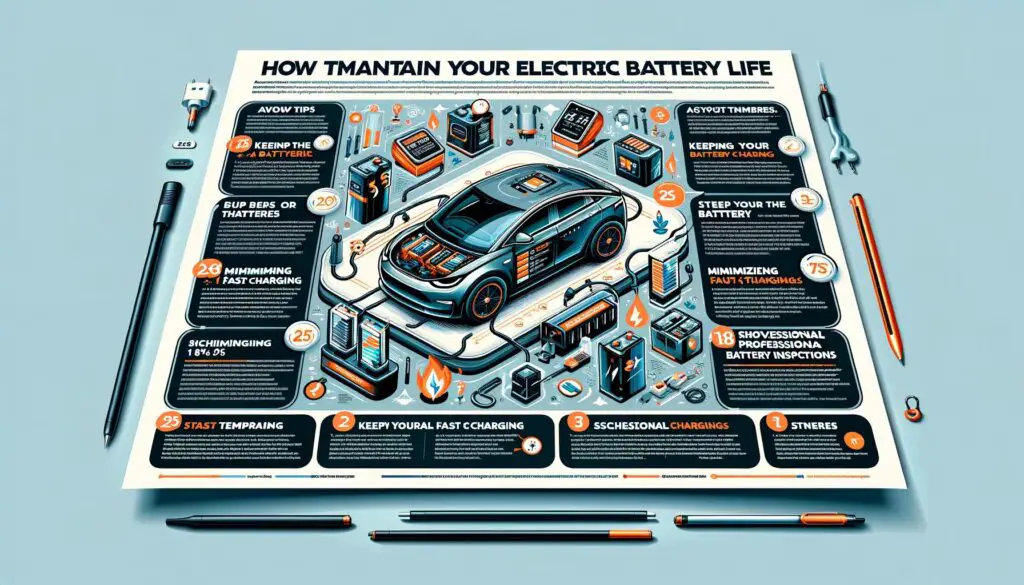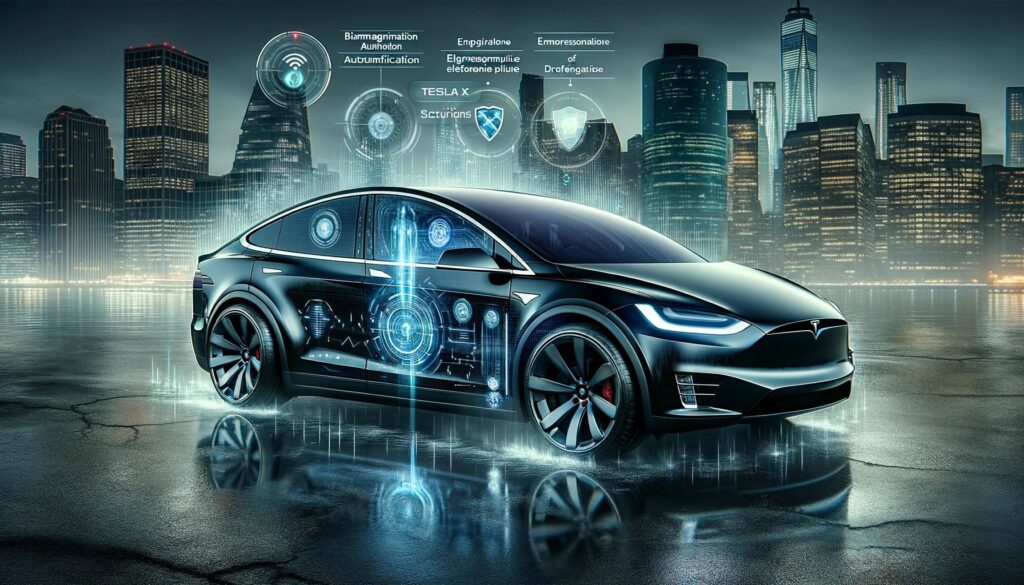In today’s automotive landscape, the shift towards electric vehicles (EVs) is undeniable. With a focus on sustainability and cost-effectiveness, more drivers are considering the switch to electric cars. However, the initial investment in a new electric vehicle can be substantial. That’s where the option of purchasing a used electric car under $10,000 presents an attractive opportunity.
Why Consider a Used Electric Car?
Environmental Benefits
- Reduction of Greenhouse Gas Emissions: Electric cars produce zero tailpipe emissions, helping to mitigate air pollution and combat climate change. According to the Union of Concerned Scientists, driving an electric car produces significantly fewer emissions compared to gasoline-powered vehicles, even when accounting for electricity generation from fossil fuels.
- Decreased Reliance on Fossil Fuels: By shifting to electric vehicles, drivers reduce their dependence on fossil fuels such as gasoline and diesel. This transition is crucial for reducing carbon dioxide emissions and addressing the environmental impacts of traditional transportation methods.
Lower Operating Costs
- Fuel Savings: Electric cars are more energy-efficient than gasoline-powered vehicles, resulting in lower fuel costs for drivers. The U.S. Department of Energy estimates that electric vehicles can be up to three times more efficient than conventional cars, translating to substantial savings over time.
- Maintenance Cost Reduction: Electric cars have fewer moving parts than internal combustion engine vehicles, leading to lower maintenance requirements and expenses. Without components like spark plugs, fuel injectors, and oil filters, electric vehicles typically incur lower maintenance costs over their lifespan.
Incentives and Rebates
- Government Incentives: Many governments offer financial incentives and rebates to promote the adoption of electric vehicles. These incentives may include tax credits, grants, or subsidies for purchasing electric cars, making them more affordable for consumers.
- Utility Programs: Some utility companies provide incentives for electric vehicle owners, such as discounted electricity rates for charging during off-peak hours or free installation of home charging stations.
- Local Initiatives: Cities and municipalities may offer additional incentives for electric vehicle owners, such as free parking, access to carpool lanes, or exemptions from vehicle registration fees.
Research and Studies
- A study published in the journal “Environmental Research Letters” found that electric vehicles produce lower lifecycle greenhouse gas emissions compared to conventional vehicles, even when accounting for emissions from electricity generation.
- According to research by the International Council on Clean Transportation, electric vehicles have lower total cost of ownership than gasoline-powered vehicles in many regions, thanks to lower fuel and maintenance costs.
- The Environmental Protection Agency (EPA) states that electric vehicles are more energy-efficient than conventional vehicles, with electric motors converting about 60% of the electrical energy from the grid to power at the wheels, while internal combustion engines only convert about 20% of the energy stored in gasoline.
The Best Used Electric Cars Under $10,000
| Electric Car | Overview | Expected Range | User Reviews |
| Nissan Leaf | Pioneer in electric car market, spacious interior, advanced features, commendable reliability | 60-100 miles on a single charge | Smooth driving experience, low operating costs, minimal maintenance requirements |
| Chevrolet Spark EV | Compact, nimble, agility, efficient performance | Varies depending on model year and battery capacity | Affordability, maneuverability, impressive range relative to size |
| Fiat 500e | Retro-inspired design, compact dimensions, vibrant personality | Limited range | Distinctive style, comfortable interior, affordable pricing |
| Kia Soul EV | Practicality, eco-friendliness, ample cargo space, versatile seating configurations, modern amenities | Minimal degradation in battery performance over time | Smooth acceleration, quiet ride, user-friendly infotainment system |
- 2012-2016 Nissan Leaf
- Overview: The Nissan Leaf is widely regarded as a pioneer in the electric car market, known for its innovative design and reliable performance. With a spacious interior and advanced features, the Leaf offers a comfortable and enjoyable driving experience.
- Expected Range: Depending on the model year and battery capacity, the Nissan Leaf typically delivers a range of 60-100 miles on a single charge. While earlier models may have lower range capabilities, newer versions offer improved battery technology for extended driving range.
- User Reviews: Owners consistently praise the Nissan Leaf for its smooth driving dynamics, low operating costs, and minimal maintenance requirements. The Leaf’s regenerative braking system and instant torque delivery contribute to its responsive and efficient performance, making it a popular choice among electric car enthusiasts.
- 2013-2016 Chevrolet Spark EV
- Overview: The Chevrolet Spark EV is a compact electric car known for its nimble handling and efficient performance. With instant torque delivery and responsive acceleration, the Spark EV offers a spirited driving experience ideal for urban commuting.
- Driving Experience: Owners appreciate the Spark EV’s agility and maneuverability, making it well-suited for navigating city streets and tight spaces. The car’s compact size and tight turning radius enhance its urban capabilities, while its regenerative braking system helps maximize driving range.
- User Feedback: Feedback from Spark EV owners highlights the car’s affordability, impressive range relative to its size, and overall satisfaction with its performance and features. Despite its compact dimensions, the Spark EV offers a surprisingly spacious interior and comfortable seating for passengers.
- 2014-2019 Fiat 500e
- Design and Appeal: The Fiat 500e stands out with its retro-inspired design, compact dimensions, and distinctive styling cues. Its playful personality and eye-catching aesthetics make it a popular choice among urban commuters and style-conscious drivers.
- City Driving: With its small footprint and agile handling, the 500e excels in urban environments, effortlessly navigating congested streets and tight parking spaces. Its compact size and responsive electric powertrain make it an ideal choice for city dwellers seeking an efficient and practical mode of transportation.
- Owner Satisfaction: Despite concerns about its limited range compared to other electric cars, Fiat 500e owners appreciate its unique style, comfortable interior, and affordable pricing. The car’s nimble handling and lively performance add to its appeal, making it a fun and practical choice for urban driving.
- 2014-2019 Kia Soul EV
- Utility and Space: The Kia Soul EV combines eco-friendliness with practicality, offering ample cargo space, versatile seating configurations, and modern amenities. Its boxy design maximizes interior space, providing passengers with a comfortable and spacious environment.
- Battery Life: Kia’s reputation for reliability extends to the Soul EV, with owners reporting minimal degradation in battery performance over time. The car’s efficient electric powertrain delivers smooth acceleration and a quiet ride, enhancing the overall driving experience.
- Real-World Experiences: Drivers appreciate the Soul EV’s user-friendly infotainment system, intuitive controls, and advanced safety features. Its long list of standard and available amenities make it a competitive option in the used electric car market, offering both practicality and performance for everyday driving needs.
Shopping for a Used Electric Car: What to Know
When shopping for a used electric car, it’s essential to be well-informed and meticulous in your evaluation process. Here are key factors to consider:
Importance of Battery Health
The battery pack is the heart of an electric car, and its condition significantly impacts performance and range. Prioritize vehicles with well-maintained battery systems to ensure long-term satisfaction. Here’s why battery health is crucial:
- Performance: A degraded battery can lead to reduced acceleration, diminished range, and overall decreased performance. Ensuring the battery is in good condition is vital for optimal driving experience.
- Range: The capacity and health of the battery directly affect the driving range of the electric car. A healthy battery will provide more consistent and reliable range, giving you confidence in your daily commute or long-distance travels.
- Longevity: Electric car batteries degrade over time, but proper maintenance and care can slow down this process. Choosing a used electric car with a well-maintained battery increases the likelihood of enjoying reliable performance for years to come.
Understanding Vehicle History Reports
Obtaining a comprehensive vehicle history report is essential to uncover any past accidents, maintenance issues, or potential red flags before making a purchase decision. Here’s why it matters:
- Accident History: A vehicle history report will reveal whether the electric car has been involved in any accidents or collisions. Knowing the vehicle’s history helps assess its overall condition and potential repairs needed.
- Maintenance Records: Reviewing maintenance records allows you to verify if the electric car has received regular servicing and upkeep. Well-documented maintenance indicates responsible ownership and can give you confidence in the vehicle’s reliability.
- Title Status: Checking the title status ensures that the electric car has a clean title with no outstanding liens or legal issues. This step is crucial for avoiding potential ownership disputes or financial liabilities.
Mileage vs. Age
While low mileage is desirable, the age of the electric car also influences its overall condition and reliability. Consider both factors when evaluating used EVs:
- Mileage: Low mileage indicates that the electric car has been driven less and may have less wear and tear on critical components. However, it’s essential to assess how the vehicle was driven and maintained, as excessive stop-and-go driving or neglect can impact its condition.
- Age: Even with low mileage, the age of the electric car can affect its reliability due to factors such as battery degradation, component aging, and technological advancements. Newer models may feature improved battery technology and performance capabilities, but they may come at a higher price point.
In summary, shopping for a used electric car requires careful consideration of battery health, vehicle history, mileage, and age. By prioritizing well-maintained vehicles with clean histories and assessing their overall condition, you can make an informed purchase decision and enjoy the benefits of electric driving with confidence.
How to Check Battery Health
Ensuring the health of the battery pack is essential when evaluating a used electric car. Here are some methods to assess the battery health effectively:
Professional Inspection
- Diagnostic Tools: Certified technicians can use specialized diagnostic tools to assess the overall health and performance of the battery pack. These tools measure key metrics such as state of charge, voltage levels, and cell balancing to determine the battery’s condition accurately.
- Voltage Readings: Technicians may perform voltage readings on individual battery cells to identify any abnormalities or imbalances. Consistent voltage levels across all cells indicate a healthy battery, while variations may signal potential issues or degradation.
DIY Methods
- Voltage Readings: You can conduct basic voltage readings using a multimeter to check the overall health of the battery pack. Measure the voltage at full charge and compare it to the manufacturer’s specifications to gauge its condition.
- Diagnostic Tools: Some electric car models come equipped with onboard diagnostic systems that provide real-time data on battery performance and health. Utilize these tools to monitor battery status and identify any warning signs of degradation or malfunction.
- Visual Inspection: Inspect the battery pack for physical damage, leaks, or corrosion on terminals. Any signs of damage or deterioration may indicate underlying issues that require further inspection by a professional.
Interpreting Battery Health Reports
- State of Health (SoH): Battery health is often expressed as a State of Health percentage, indicating the remaining capacity relative to the original capacity when new. A higher SoH percentage signifies a healthier battery with greater longevity and performance.
- Cycle Count: Evaluate the number of charge-discharge cycles the battery has undergone, as excessive cycling can accelerate degradation. A lower cycle count suggests less wear and tear on the battery and potentially better longevity.
- Cell Balancing: Ensure that the battery pack maintains proper cell balancing, where each individual cell within the pack is charged and discharged evenly. Cell imbalances can lead to reduced performance and premature degradation of the battery.
By employing these methods and interpreting battery health reports accurately, you can make informed decisions when purchasing a used electric car. Prioritize vehicles with well-maintained battery systems to ensure optimal performance and longevity, ultimately maximizing your satisfaction and driving experience.
Financing and Insurance for Used Electric Cars
When purchasing a used electric car, navigating the process of financing and obtaining insurance requires careful consideration. Here are some tips to help you secure financing and find the right insurance coverage for your used electric vehicle (EV):
Tips for Securing Financing
- Explore Multiple Options: Start by researching financing options offered by banks, credit unions, and specialized lenders catering to electric vehicle buyers. Each lender may offer different terms and interest rates, so exploring multiple options allows you to compare and find the best deal.
- Compare Interest Rates and Terms: When evaluating financing offers, pay attention to the interest rates, loan terms, and any additional fees or charges. Choose a financing option that offers competitive rates and flexible terms to suit your budget and financial goals.
- Consider Pre-Approval: Getting pre-approved for financing before shopping for a used electric car can streamline the buying process and provide you with greater bargaining power. Pre-approval demonstrates to sellers that you are a serious buyer and can expedite the transaction once you find the right vehicle.
Insurance Considerations
- Contact Multiple Providers: Reach out to insurance providers to obtain quotes for coverage on a used electric car. Some insurers may offer specialized policies tailored to EVs, so it’s essential to explore your options and compare quotes from multiple providers.
- Look for EV Discounts: Some insurance companies offer discounts or incentives for eco-friendly vehicles, including electric cars. Inquire about any available discounts or savings opportunities specifically for electric vehicle owners to potentially lower your insurance premiums.
- Review Coverage Options: When selecting an insurance policy for your used electric car, consider factors such as liability coverage, comprehensive coverage, and collision coverage. Ensure that the policy provides adequate protection for your vehicle and personal assets in the event of an accident or unforeseen circumstances.
- Evaluate Deductibles and Limits: Assess the deductibles and coverage limits offered by different insurance policies to determine the level of protection that best meets your needs. Balancing affordability with comprehensive coverage is key to finding the right insurance policy for your budget and peace of mind.
By following these tips for securing financing and obtaining insurance coverage for your used electric car, you can make informed decisions and enjoy a seamless buying experience. Prioritize finding financing options with favorable terms and insurance policies that offer comprehensive coverage and potential discounts for eco-friendly vehicles, ultimately maximizing the value and sustainability of your electric vehicle investment.
Charging Solutions for Your Used Electric Car
When owning a used electric car, having reliable charging solutions is essential for convenience and peace of mind. Here are some tips for charging your electric vehicle effectively:
Home Charging Basics
- Invest in a Home Charging Station: Consider installing a home charging station to facilitate convenient and cost-effective charging overnight. These stations, also known as Electric Vehicle Supply Equipment (EVSE), provide faster charging speeds compared to standard household outlets, allowing you to replenish your car’s battery efficiently.
- Consider Charging Speed: When choosing a home charging station, evaluate the charging speed to ensure it meets your needs. Level 2 chargers, which typically operate at 240 volts, offer faster charging rates than Level 1 chargers, which use standard 120-volt outlets. Select a charger with the appropriate power output based on your electric car’s battery capacity and charging requirements.
- Check Compatibility: Ensure that the home charging station is compatible with your electric car’s charging port and specifications. Most electric vehicles use standard J1772 connectors for Level 2 charging, but it’s essential to verify compatibility with your specific model.
- Installation Requirements: Before installing a home charging station, consult with a qualified electrician to assess your home’s electrical system and determine the installation requirements. Factors such as electrical capacity, wiring upgrades, and placement of the charging station should be considered to ensure safe and efficient operation.
Finding Public Charging Stations
- Utilize Online Maps and Apps: Take advantage of online maps and smartphone apps designed to help you locate public charging stations along your regular routes. Platforms such as PlugShare, ChargePoint, and Electrify America provide real-time information on charging station locations, availability, and pricing.
- Plan Your Trips: Before embarking on a journey, plan your route and identify nearby charging stations to ensure access to charging infrastructure along the way. Consider factors such as charging speed, distance between stations, and potential detours to optimize your travel itinerary and minimize charging downtime.
Tips for Efficient Charging
- Avoid Frequent Fast Charging: While fast charging can replenish your car’s battery quickly, frequent use may lead to accelerated battery degradation over time. Whenever possible, prioritize slower charging methods such as Level 2 charging at home or workplace charging stations to preserve battery health.
- Maintain Moderate Battery Levels: Aim to maintain your electric car’s battery within a moderate state of charge, typically between 20% and 80%, to optimize battery longevity and performance. Avoid fully depleting or overcharging the battery whenever possible to minimize wear and extend its lifespan.
- Take Advantage of Off-Peak Electricity Rates: Many utility companies offer discounted electricity rates during off-peak hours, such as overnight or early morning. Schedule your charging sessions to coincide with these lower rates to maximize cost savings and reduce your overall electricity expenses.
By following these tips for home and public charging solutions, as well as optimizing your charging habits for efficiency and battery health, you can enjoy a seamless and rewarding experience with your used electric car. Prioritize convenience, affordability, and sustainability to make the most of your electric vehicle ownership journey.
Maintenance and Upkeep
Maintaining a used electric car is crucial for ensuring its longevity, performance, and overall value. Here’s what you need to know about maintenance and upkeep:
Routine Maintenance Overview
- Follow Manufacturer Recommendations: Adhere to the manufacturer’s recommendations for routine maintenance, including scheduled service intervals and specific maintenance tasks. Consult the owner’s manual or contact the dealership for guidance on proper maintenance procedures.
- Tire Rotations: Regularly rotate the tires to promote even wear and extend tire life. Uneven tire wear can affect handling and fuel efficiency, so maintaining proper tire rotation intervals is essential for optimal performance.
- Brake Inspections: Periodically inspect the brakes for wear and tear, including brake pads, rotors, and brake fluid levels. Addressing brake issues promptly helps ensure safe and reliable braking performance, reducing the risk of accidents or damage.
- Fluid Checks: Check fluid levels regularly, including motor oil, coolant, brake fluid, and windshield washer fluid. Maintaining proper fluid levels and quality helps prevent overheating, corrosion, and mechanical issues, ensuring smooth operation and longevity.
Long-Term Battery Care
- Monitor Battery Health: Keep track of the battery health regularly using onboard diagnostics or professional inspections. Monitoring key metrics such as state of charge and battery capacity helps identify any signs of degradation or performance issues early on.
- Preserve Battery Life: Follow best practices for preserving battery life, such as avoiding exposure to extreme temperatures and minimizing deep discharges. Storing the vehicle in a cool, shaded area and avoiding prolonged exposure to high temperatures helps maintain battery health and performance over time.
- Minimize Deep Discharges: Limit deep discharges of the battery by avoiding letting the battery drain to extremely low levels frequently. Minimizing deep discharges helps extend battery life and prevent premature degradation, preserving its capacity and longevity.
Battery Replacement Considerations
- Plan Ahead: Plan for the eventual replacement of the battery pack by setting aside funds for future maintenance expenses. While electric car batteries are designed to last for many years, they will eventually degrade over time and require replacement.
- Consult with Technicians: Consult with certified technicians or dealership service centers for guidance on battery replacement intervals and costs. They can assess the current condition of the battery pack and provide recommendations based on usage patterns and vehicle age.
- Budget Accordingly: Factor the cost of battery replacement into your long-term ownership costs and budget accordingly. While battery replacement can be a significant expense, proper maintenance and care can help delay the need for replacement and maximize the lifespan of the battery pack.
By following these maintenance and upkeep guidelines, you can ensure that your used electric car remains in optimal condition, delivering reliable performance, efficiency, and longevity for years to come. Regular maintenance and proactive battery care are essential for maximizing the value and enjoyment of your electric vehicle investment.
Future-Proofing Your Purchase
User Stories: Successful Used EV Purchases
Discovering real-life experiences of individuals who have successfully purchased used electric cars under $10,000 can provide valuable insights and inspiration for your own buying journey. Here are some case studies and lessons learned from their experiences:
Case Study 1: Sarah’s Nissan Leaf Adventure
Background: Sarah, a college student on a tight budget, was in need of a reliable and affordable mode of transportation. After researching her options, she stumbled upon a 2013 Nissan Leaf listed for sale at a local dealership for just under $8,000.
Experience: Despite initial skepticism about purchasing a used electric car, Sarah was pleasantly surprised by her experience with the Nissan Leaf. The car’s smooth driving dynamics, spacious interior, and minimal maintenance requirements exceeded her expectations.
Challenges: Sarah encountered some challenges related to range anxiety and charging infrastructure availability in her area. However, with careful planning and utilizing public charging stations, she was able to navigate these obstacles effectively.
Key Takeaways: Sarah’s experience taught her the importance of thorough research, budgeting for potential charging infrastructure upgrades, and embracing the benefits of electric driving, such as lower operating costs and environmental sustainability.
Case Study 2: Mark’s Kia Soul EV Success Story
Background: Mark, a busy professional with a growing family, needed a practical and eco-friendly vehicle to accommodate his daily commuting needs and weekend adventures. After browsing listings online, he stumbled upon a 2015 Kia Soul EV with low mileage and excellent battery health for $9,500.
Experience: Mark’s experience with the Kia Soul EV surpassed his expectations, thanks to its spacious interior, versatile cargo capacity, and impressive range capabilities. The car’s reliability and efficiency made it an ideal choice for his busy lifestyle.
Challenges: Mark faced challenges related to finding affordable insurance coverage for his electric car and navigating the intricacies of home charging installation. However, with the help of insurance agents and electric vehicle specialists, he was able to overcome these hurdles successfully.
Key Takeaways: Mark learned the importance of exploring insurance options tailored to electric vehicles and investing in home charging infrastructure to maximize convenience and flexibility. His positive experience with the Kia Soul EV reaffirmed the value of choosing a well-maintained and reputable electric car model.
Lessons Learned
- Thorough Research: Conduct extensive research on available electric car models, pricing trends, and user reviews to make informed purchasing decisions.
- Budgeting for Charging Infrastructure: Factor in the cost of home charging installation and potential upgrades to ensure seamless charging access and convenience.
- Embracing Electric Driving: Embrace the benefits of electric driving, such as lower operating costs, environmental sustainability, and smooth performance, to maximize the value of your investment.
- Utilizing Public Charging Infrastructure: Familiarize yourself with the availability of public charging stations in your area and plan your routes accordingly to mitigate range anxiety and ensure convenient charging access.
Frequently Asked Questions
Here are answers to some commonly asked questions about buying and owning a used electric car:
Can I Find a Reliable Electric Car for Under $10,000?
Yes, it is possible to find a reliable used electric car within a budget of $10,000. By conducting thorough research and prioritizing well-maintained vehicles with good battery health, you can increase your chances of finding a dependable option that meets your needs.
How Do I Check the Battery Health of a Used Electric Car?
There are several methods for assessing the battery health of a used electric car:
- Professional Inspection: Consider hiring a certified technician to conduct a thorough inspection of the battery system using specialized diagnostic tools.
- DIY Methods: You can perform basic battery health checks yourself using tools such as a multimeter to measure voltage levels or onboard diagnostic systems to monitor battery performance indicators.
What Are the Long-Term Savings of Owning an Electric Car?
Owning an electric car offers significant long-term savings compared to traditional gasoline-powered vehicles. These savings primarily stem from:
- Fuel Costs: Electric cars have lower fuel costs since electricity is generally cheaper than gasoline or diesel.
- Maintenance Expenses: Electric cars have fewer moving parts than internal combustion engine vehicles, resulting in lower maintenance costs over time.
- Incentives and Rebates: Many regions offer incentives and rebates for purchasing electric vehicles, further enhancing the long-term cost savings.
How Does Mileage Affect a Used Electric Car?
While low mileage is desirable, the age of the electric car and the condition of its battery pack are equally important factors to consider. A well-maintained electric car with higher mileage may still offer reliable performance and longevity if the battery health is good.
Are There Any Hidden Costs in Buying a Used Electric Car?
In addition to the purchase price, there are several factors to consider when budgeting for a used electric car:
- Charging Infrastructure: You may need to invest in home charging infrastructure or utilize public charging stations, which could incur additional costs.
- Insurance Premiums: Insurance premiums for electric cars may differ from those for conventional vehicles, so it’s essential to obtain quotes from insurance providers.
- Maintenance Expenses: While maintenance costs for electric cars are generally lower, there may still be occasional expenses for servicing and repairs.
By considering these factors and conducting thorough research, you can make an informed decision when purchasing a used electric car and enjoy the benefits of eco-friendly driving and long-term cost savings.
Conclusion
In conclusion, choosing a used electric car under $10,000 offers a compelling blend of affordability, sustainability, and innovation. By considering the environmental benefits, lower operating costs, and incentives available for electric vehicles, drivers can make a smart and eco-conscious investment. With careful research, thorough inspections, and proactive maintenance, you can enjoy the benefits of electric driving while minimizing costs and environmental impact. Join the electric revolution today and electrify your drive for a brighter, greener future.
Call to Action
Ready to explore the world of used electric cars? Start your journey by conducting thorough research, browsing listings, and test-driving your favorite models. Subscribe to our newsletter for updates on new listings, EV news, and exclusive deals. Have questions or insights to share? Join the conversation in the comments section below and connect with our community of electric car enthusiasts. Let’s drive towards a sustainable future together!
Reference Links
For further information and resources on buying and owning a used electric car, consider exploring the following reference links:
- Electric Vehicle Charging Guide: This comprehensive guide by the U.S. Department of Energy provides valuable information on electric vehicle charging infrastructure, including home charging installation, public charging networks, and charging station locator tools.
- Electric Car Insurance Guide: Consumer Reports offers an in-depth guide to electric car insurance, including tips for finding affordable coverage, understanding policy options, and leveraging discounts for eco-friendly vehicles.
- Used Electric Car Buying Guide: Edmunds provides a comprehensive buying guide for used electric cars, covering topics such as research and selection, inspection tips, negotiation strategies, and ownership considerations.
- Electric Vehicle Tax Credits and Incentives: The Alternative Fuels Data Center (AFDC) offers a state-by-state guide to electric vehicle tax credits, rebates, and incentives, helping you maximize potential savings and incentives for purchasing an electric car.
- Electric Car Forums and Communities: Joining online forums and communities dedicated to electric cars can provide valuable insights, user experiences, and peer-to-peer advice for buying and owning a used electric car. Websites like MyEV.com offer research tools and community forums for electric vehicle enthusiasts.
By exploring these reference links, you can access additional information, insights, and resources to support your journey towards purchasing and enjoying a used electric car.

